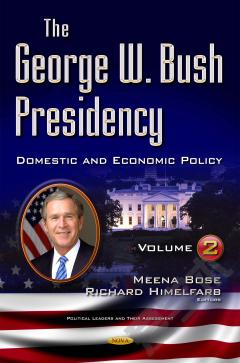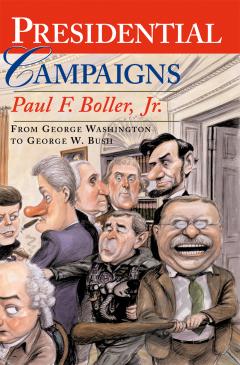The George W. Bush Presidency. Volume II: Domestic and Economic Policy
Given the focus on foreign affairs and national security following 9/11, it is easy to overlook the domestic and economic legacies of the George W. Bush presidency. However, the articles in this volume argue that not only were these policies consequential to the nation, but in a number of instances they defied the conventional wisdom concerning the Bush White House. While Bush pursued ideologically conservative policies in some areas (e.g., Social Security, Supreme Court nominations and taxes), in others he did not (e.g., education, trade, government spending). Other examples include staffing (more competent and less ideological than one would expect) and press relations (relatively transparent). Taken together, these chapters will provoke second thoughts about Bush's domestic presidency as they argue that his policies frequently deviated from doctrinaire conservatism and changed the nation.Target Audience:Scholars of the American presidency in political science, history, rhetoric and communication, journalism, and other academic disciplines, as well as their students. Also general readers interested in the American presidency and American politics.
{{comment.content}}








 京公网安备 11010802027623号
京公网安备 11010802027623号